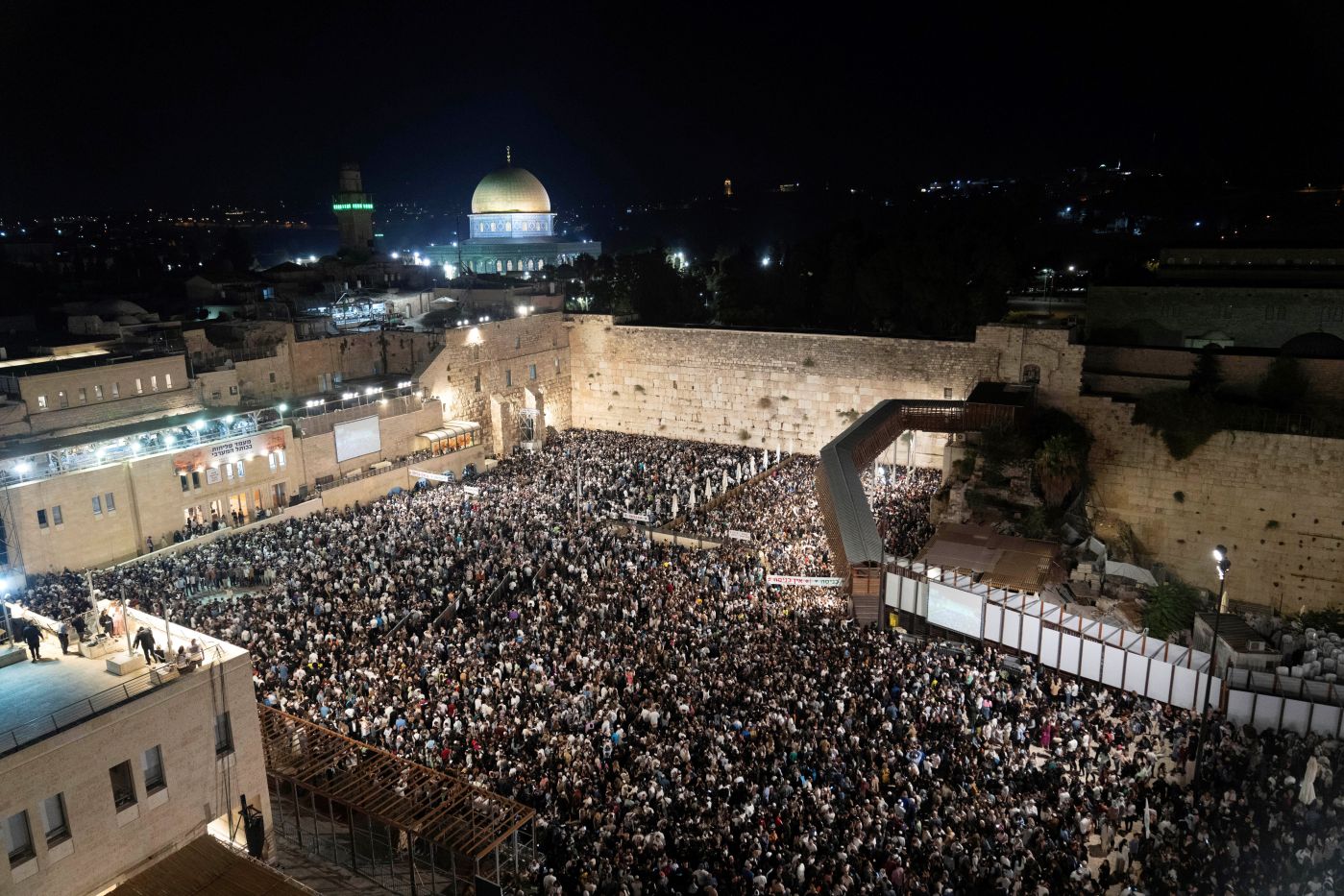
Gaskin: Yom Kippur offers lessons in prayer, repentance
It is hard to look at the world today and not feel we need a day of repentance and atonement.
“Justice, Justice you shall pursue.” We have fallen so short of that politically, socially and economically. The events since the Oct. 7 massacre by Hamas, including the lives lost in Israel and Gaza, remind us that it’s an important time to reflect on our shortcomings. Have we done everything possible to achieve peace and set the captives free?
As a Christian who attends Shabbat regularly, I find Yom Kippur deeply meaningful. It complements Easter. Both holidays deal with atonement, sin, repentance, and forgiveness— Easter in the spring, Yom Kippur in the fall. Yom Kippur focuses on what we did or didn’t do and our need for atonement, while Easter celebrates Jesus’s sacrifice being accepted, affirming our atonement. In both cases, the result is the same: our names are written in the Book of Life.
The New Testament includes motifs of sacrifice, blood, priesthood, intercession, and remission of sins, which are all present in the book of Leviticus and on Yom Kippur. Understanding the similarities and differences between the two holidays could be important for interfaith couples, and their children, and interfaith dialogue. I would hope that we focus on what we have in common as we strive for peace. recognizing that forgiveness and atonement are available to all who seek it — and we all need it.
Many of us have lost our way, but we never lost our faith. Christianity has a history of co-opting, and syncretistic practices of religious traditions, such as with Easter bunnies and Santa Claus, and a troubling history of antisemitism — resulting in the adoption of Crypto-Judaism, forced conversions, expulsion, and even death. Yet, Christians should reflect on Yom Kippur, the Jewish Day of Atonement, which remains a solemn and profound practice. It is a day spent fasting and praying for God’s forgiveness as the new year begins, observed by both citizens and “the alien who resides among you” (Leviticus 16:29-30).
Yom Kippur offers valuable lessons for Christian prayer, and for four reasons, I see it as a model.
In the Yom Kippur service, where Jews seek forgiveness from God and fellow humans against whom they may have sinned, I immediately thought it reflected the spirit of the Great Commandment, described in Luke 10:27 (which, in turn, was taken from Jewish teaching in Torah, in Deuteronomy, and from the teachings of Hillel):
The Great Commandment, “Love the Lord your God with all your heart, soul, strength, and mind, and your neighbor as yourself,” reflects the essence of atonement. In the Yom Kippur service, Jews seek forgiveness from God and fellow humans — a spirit that mirrors this commandment. Jesus echoes this in Matthew 5:23-24: “First go and be reconciled to them; then come and offer your gift.” Jesus, familiar with Yom Kippur, reflected this call to reconciliation.
Yom Kippur could also serve as a model for a National Day of Prayer. Not to co-opt it, but as a model. Jews have been observing it for thousands of years — long before Harry Truman designated a National Day of Prayer in 1952. Christians often use Old Testament passages for this day, such as 2 Chronicles 7:14 and Daniel 9:3-6, asking for forgiveness and healing.
Yom Kippur offers a balance between personal and corporate confession that Christianity in the West often lacks. While Christian prayers of confession use “we” and “us,” as found in 1 John 1:8-10; “If we claim to be without sin, we deceive ourselves and the truth is not in us. . . . “ But in scripture, corporate confession is present, such as in Jonah 3:5-9, where the entire city of Nineveh repents. In Jewish tradition, corporate confession acknowledges systemic sin, something some Christians struggle to accept.
In the Haggadah, it is the wicked child who does not see him or herself as part of the group or community. The wicked child asks, “Whatever does this mean to you?” The authors admonish this child as one who is not concerned about the laws personally, but only for others.
The New Testament refers to the Day of Atonement in Acts 27:9 but doesn’t indicate whether Christians observed it. Nevertheless, they were aware of it. For these reasons, I could see modern Christians adopting their own day of personal and communal atonement, modeled on Yom Kippur. This day could serve as an ecumenical and interfaith moment of repentance and reflection, in the spirit of Jonah: “Let everyone call urgently on God. Let them give up their evil ways and their violence. Who knows? God may yet relent with compassion” (Jonah 3:8-9).
As we look at the world today, with its violence and divisions, a day of atonement might help us all reflect, repent, and work toward a more just and peaceful future.
Ed Gaskin is Executive Director of Greater Grove Hall Main Streets and founder of Sunday Celebrations.


